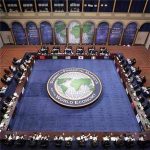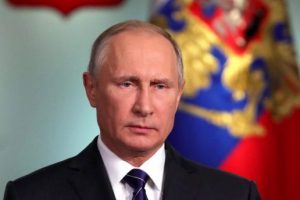STRASBOURG, FRANCE/BEIJING — The European Union’s top economy official said Tuesday that the U.S. dollar’s role as the international reserve currency is secure despite Chinese calls for a global alternative.
EU Commissioner Joaquin Almunia says he didn’t see “major structural changes in the role the dollar plays today as a major reserve currency” following a call by China’s central banker for a new global currency controlled by the International Monetary Fund.
China, the world’s most populous nation and the United States’ biggest foreign creditor, is starting to flex its muscles and set out how it sees the global economy changing before talks among leaders of the Group of 20 major economies in London on April 2.
Mr. Almunia said “everybody agrees” the IMF should be a bigger player in the world economy and that emerging nations such as China and India now have a “much more important and relevant” role.
China is calling for a new global currency controlled by the International Monetary Fund.
The comments, in an essay by the Chinese central bank governor released late Monday, reflect Beijing’s growing assertiveness in economic affairs.
Gov. Zhou Xiaochuan’s essay did not mention the dollar by name but it said the crisis showed the dangers of relying on one country’s currency for international payments.
In an unusual step, the essay was published in both Chinese and English, making clear it was meant for an international audience.
“The crisis called again for creative reform of the existing international monetary system towards an international reserve currency,” Mr. Zhou wrote.
A reserve currency is the unit in which a government holds its reserves. But Mr. Zhou said the proposed new currency also should be used for trade, investment, pricing commodities and corporate bookkeeping.
Beijing has long been uneasy about relying on the U.S. dollar for the bulk of its trade and to store foreign reserves. Premier Wen Jiabao publicly appealed to Washington this month to avoid any steps in response to the crisis that might erode the value of the dollar and Beijing’s estimated $1-trillion holdings in Treasuries and other U.S. government debt.
The currency should be based on shares in the IMF held by its 185 member countries, known as special drawing rights, or SDRs, the essay said. The Washington-based IMF advises governments on economic policy and lends money to help with balance-of-payments problems.
Some economists have suggested creating a new reserve currency to reduce reliance on the dollar but acknowledge it would face major obstacles. It would require acceptance from countries that have long used the dollar and hold huge stockpiles of the U.S. currency.
“There has been for decades talk about creating an international reserve currency and it has never really progressed,” said Michael Pettis, a finance professor at Peking University’s Guanghua School of Management.
Managing such a currency would require balancing the contradictory needs of countries with high and low growth or with trade surpluses or deficits, Pettis said. He said the 16 European countries that use the euro have faced “huge difficulties” in managing monetary policy even though their economies are similar.
“It’s hard for me to imagine how it’s going to be easier for the world to have a common currency for trade,” he said.
China has pressed for changes to give developing countries more influence in the IMF, the World Bank and other finance bodies. G20 finance officials issued a statement at their last meeting calling for such changes but gave no details of how that might happen.
Russia also has called for such reforms and says it will press its case at the London summit.
Mr. Zhou said the new currency would let governments manage their economies more efficiently because its value would not be influenced by any one country’s need to regulate its own finance and trade.
“A super-sovereign reserve currency managed by a global institution could be used to both create and control global liquidity,” Mr. Zhou wrote. “This will significantly reduce the risks of a future crisis and enhance crisis management capability.”
Mr. Zhou also called for changing how SDRs are valued. Currently, they are based on the value of four currencies — the dollar, euro, yen and British pound.
“The basket of currencies forming the basis for SDR valuation should be expanded to include currencies of all major economies,” Zhou wrote. “The allocation of the SDR can be shifted from a purely calculation-based system to one backed by real assets, such as a reserve pool, to further boost market confidence in its value.”
JOE MCDONALD
sursa: www.theglobeandmail.com












Adauga comentariu